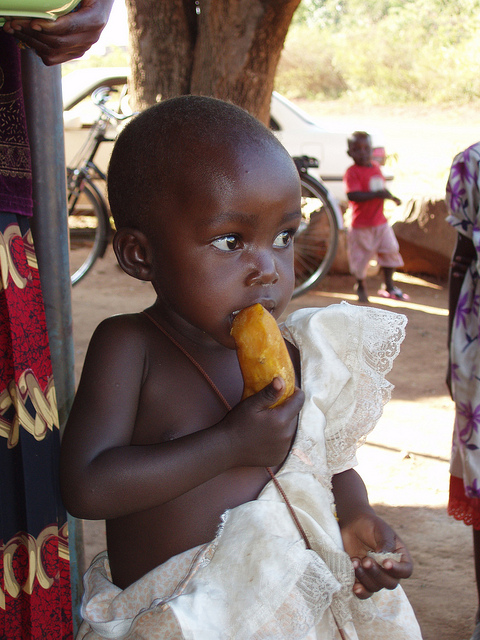Looking back at 2014, it is clear that nutrition became a central theme of IFPRI’s research. Here are a handful of highlights from our research on nutrition from the past year:
- the first annual Global Nutrition Report (GNR) launched this past November at the International Conference (ICN2) on Nutrition in Rome. The GNR provides a comprehensive narrative and analysis on the state of the world’s nutrition. Other launch events took place in Rome, London, New York City, and Washington, D.C. with more in-country roundtables planned for 2015.
- In addition to providing comprehensive measures of the state of hunger in developing countries, the 2014 Global Hunger Index shed light on hidden hunger. Hidden hunger—also called micronutrient deficiency—affects an estimated 2 billion people around the world. Diets based mostly on staple crops, such as maize, wheat, rice, and cassava, which provide large amounts of energy but relatively low amounts of essential bioavailable vitamins and minerals, frequently result in hidden hunger.
- IFPRI Senior Research Fellow John Hoddinott, participated in a briefing on Capitol Hill about economic issues around investments to reduce undernutrition in early life. The briefing, organized by Bread for the World, was meant to highlight a new US Agency for International Development nutrition strategy that focuses on the first critical 1,000 days of a child’s life, from the mother’s pregnancy to the child’s second birthday. According to IFPRI research cited in the briefing, there is a tremendous payoff for investing in nutrition interventions – for every dollar invested, you get $16 in economic returns.
- HarvestPlus produced an AfroPop music video to promote good nutrition with the help of some Rwandan musicians. The pop stars in this social marketing campaign urge mothers to feed biofortified, high-iron beans to their children. HarvestPlus worked with the government of Rwanda to produce this video because nearly 40 percent of children in Rwanda do not consume enough iron, which can have long-term consequences, including lower learning capacities, resistance to disease, and diminished energy levels. The new biofortified bean variety promoted in the video contains 15 percent more iron than traditional beans and more than 700,000 Rwandan farmers have started growing the biofortified beans since 2011.
- An A4NH-funded study published in the Journal of Nutrition in June discussed chronic undernutrition. Chronic undernutrition results in stunting (when a child is too short for its age) and it affects 165 million children worldwide. IFPRI researchers Jef Leroy, Marie Ruel, and their co-authors found that growth faltering, a consequence of chronic undernutrition, instead of slowing down after the child’s second birthday as generally believed based on previous analyses of global trends, continues well past that time. In fact, nearly a third of the total height deficit (30%) at the age of 5 is accumulated after the age of 2 (after the 1000 day window). Jef Leroy explains more about the study in the video Beyond 1000 Days.
- The 2020 conference, “Building Resilience for Food and Nutrition Security” held in May 2014 assessed emerging shocks that threaten food and nutrition security, discussed approaches and tools for building resilience, and identified knowledge and actions gaps. This conference also yielded the 2020 Resilience Book and a series of food policy reports examining the role resilience has on global nutrition. One of the conference briefs, “Enhancing resilience to nutritional shocks” explains that although undernutrition is trending downward globally, 165 million children in low-income countries were stunted in 2011 and that undernutrition contributed to 3.1 million deaths in 2011. A key recommendation from this brief is that nutrition interventions need to begin prenatally and continue during the first two years of life.







